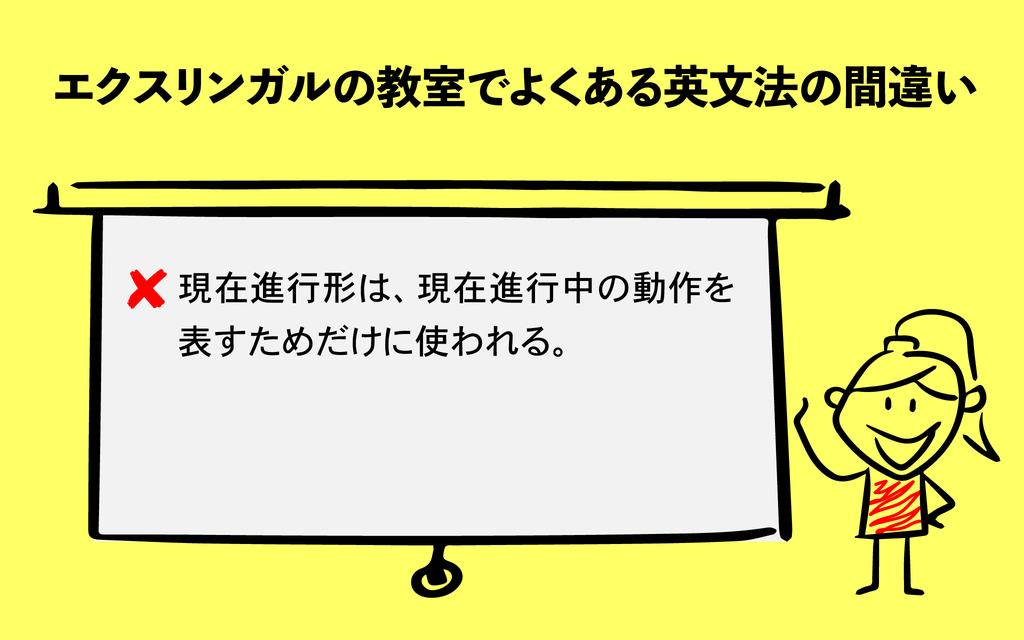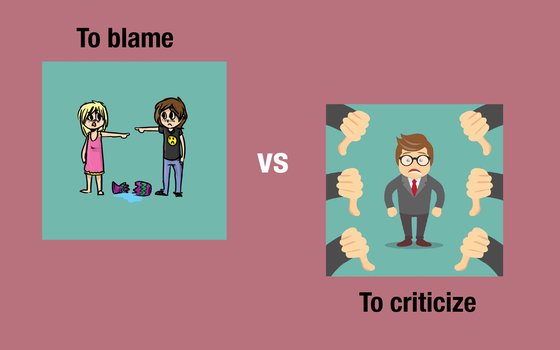(動詞+ ing)は、今起こっていることだけに使われるの?Verb with ing is not only used for actions happening right now?
これを知るとあなたの英語力はぐんとアップ!「動詞+ing」は現在のことを表現する以外にも実は様々な使い方ができ、ネイティブたちが非常によく使う表現でもあります。ぜひこのブログを読んで、「動詞+ing」を使いこなしましょう!

この間違いは、最初に中学校でどう現在進行形を教わったかに原因があるかもしれません。現在進行形は、今起こっていることを表すために使うものとして最初に紹介されています。これは正しいですし、手始めにはよいでしょう。問題は、多くのことと同様に、それが全てではないということです。残念なことに多くの人にとって、英語の現在進行形はそれで終わりとなってしまうのです。
このブログでは、毎日の会話で私たちネイティブスピーカーがどのように現在進行形を使っているのかを簡単にお伝えします。分かりやすくするため、グループに分類していますが、グループ分けが似かよっているものもあります。学習用にグループ分けしましたが、正式な分け方ではありません。
現在起こっていること
(動詞+ ing)は、話している時に起こっていることを表すために使われます。冒頭でお伝えした通り、日本の中学校で、これはしっかりと教えられています。いくつか例文をご覧ください。
I’m sorry, I’m having dinner now, can I call you back later?
Oh, look at that guy walking over there. His jacket is quite cool.
Shh please keep quiet…...the baby is sleeping.
最近のできごと
(動詞+ ing)は今この瞬間ではないけれど、近ごろ起こっていることを表すときにも使われます。理解を深めるために、例文をいくつかご紹介します。
So Carina, what are you reading these days? (I am asking her now and she is not reading anything right now)
I’m going to China next year so I’m learning Chinese (I’m not in Chinese class now)
He is having a hard time with maths at school so we are going to send him to extra classes on the weekend. (he is not at school now.)
一時的と感じること
永続的と感じることには現在形を使うことに対し、進行形は一時的な状況に使う傾向があります。この用法には個人の主観がかなり入ります。いつもではありませんが、よく「these days」「this_ _ _」「at the moment」等の言葉と使われます。例文をご覧ください。
This Olympics, we are focusing on helping athletes with their mental state. (not every Olympics)
Where are you living at the moment?
I’m living in Portland for the next two years.
He is working very hard these days. (maybe he doesn’t always work hard)
現在や最近起こっている変化
現在進行形は、今現在起こっているけれど、ずっと前から始まっていたり、この先も継続するであろう変化によく使います。
The earth’s climate is changing due to greenhouse gases.
It’s getting colder, isn’t it?
Nagakute and Miyoshi are growing rapidly.
The Japanese population is decreasing.
確定している予定
現在進行形は通常、確定している予定に使われます。この用法は生徒のみなさんにあまり知られていないので、別のブログに書きたいと思います。ここでは簡単に、いくつか例文をご紹介します。
Gareth and Noriko
They are chatting about their plans tomorrow
| Gareth | : | So Noriko, what are you doing tomorrow? |
| Noriko | : | In the morning I’m having tea with a friend, and then in the afternoon I’m watching a movie with a friend. How about you Gareth? |
| Gareth | : | I'm going shopping in Sakae in the morning. After that I'm having lunch with a friend of mine in Osu. |
| Noriko | : | Sounds great, have a good time! |
Brian and Haruna
They are chatting in the office about next week.
| Brian | : | Hi, Haruna how are things? |
| Haruna | : | Hi Brian, yeah good thanks and you? |
| Brian | : | Great thanks. By the way Haruna, I was wondering what your plans were for next week Monday |
| Haruna | : | Monday next week? Let me check my schedule. In the morning I'm doing some translation and then in the afternoon I'm having a meeting with Carina. |
| Brian | : | Ok great thanks. If you have time, could we have a meeting after your meeting? |
| Haruna | : | Yes, sure. How about 4:30pm? |
| Brian | : | That would be perfect, thanks. |
| Haruna | : | Sure! See you on Monday. Have a good weekend. |
このブログで、私たちネイティブスピーカーがどのように現在進行形を使うか、概要をつかむ助けになれば幸いです。今後の投稿で、現在進行形の詳細と、未来形としてどう使うかについてご覧いただきたいと思います。お気軽にエクスリンガルの教室までお越しになり、この内容について私たちとお話ししましょう。





